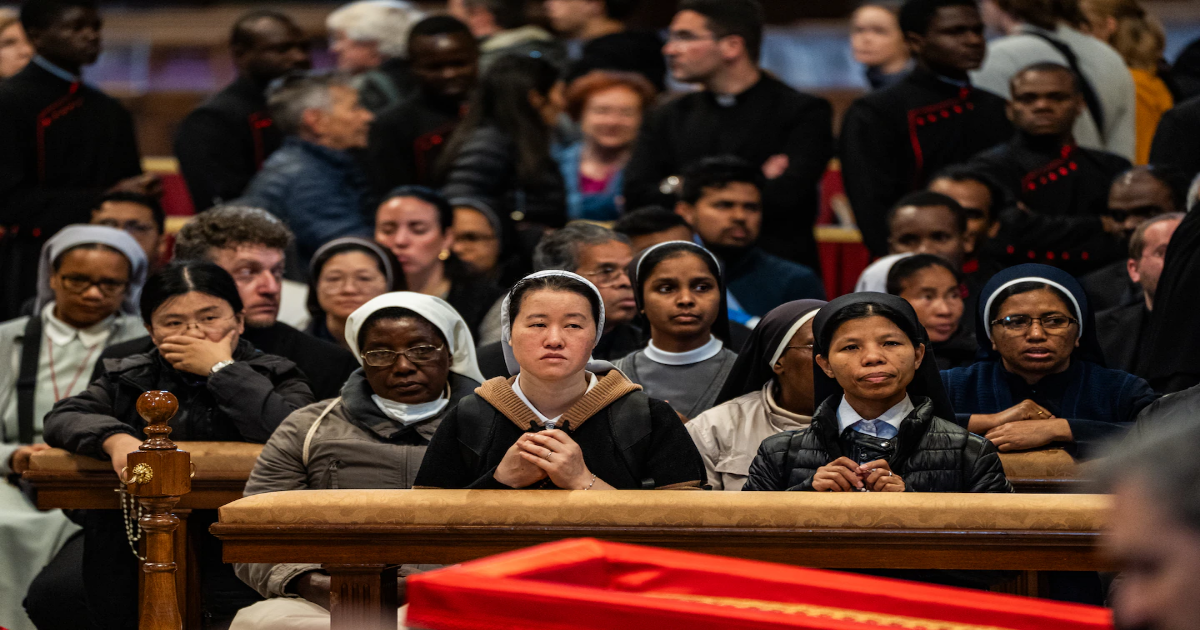VATICAN CITY — Pope Francis was alive but unresponsive after suffering a massive stroke early Monday, his doctor said, and his medical team concluded there was no point in rushing him to the hospital, given the severity of his condition and his standing orders to avoid extreme medical treatment.
“He died without suffering, at home,” Sergio Alfieri told the Italian newspaper La Repubblica in comments published Thursday.
Alfieri, a surgeon at Rome’s Gemelli hospital, coordinated Francis’s treatment during his five-week hospitalization and responded to his medical crisis on Monday.
The pope woke at 5 a.m. Monday for a glass of water, Alfieri said.
“He rolled over on his side and the nurse realized that something was wrong,” Alfieri told the Corriere della Sera newspaper. “He was having trouble answering.”
At 5:30 a.m., the pope’s personal medical assistant called Alfieri to report a major health episode.
“’The Holy Father is very sick. We have to go back to Gemelli,” Massimiliano Strappetti said, according to Alfieri.
Fifteen minutes later, Alfieri arrived at Casa Santa Marta inside the Holy See. He entered the pope’s bedroom to find his eyes wide open and the pontiff breathing normally, but unresponsive.
“I tried to call to him, but he didn’t answer me,” Alfieri told Corriere della Sera. “He didn’t respond to stimuli, not even painful ones.” The pope was pinched to assess consciousness.
“At that moment I realized that there was nothing left to do. He was in a coma.”
Alfieri said hospitalizing him would have been “useless” because he probably would have died en route, and “Strappetti knew the pope wanted to die at home.”
He died shortly after Alfieri’s examination, the doctor said.
“Doing a CT scan we would have had a more exact diagnosis, but nothing more,” he said. “It was one of those strokes that, in an hour, carries you away.”
Alfieri had treated the pope before, including during abdominal surgery in 2021. Francis had issued an end-of-life directive in which he said he would prefer to die than be intubated.
“He asked us to avoid overtreatment,” Alfieri told La Repubblica. “If he had lost consciousness, we would have had to follow the directives of his personal health assistant, Massimiliano Strappetti, who was like a son to the Holy Father.”
Asked about Francis’s relationship with doctors, Alfieri said “he generally didn’t trust them much.”
Alfieri last saw the pope on Saturday, he said. Francis told him he felt “very well” and had “started working again.”
They agreed to meet again on Monday, Alfieri said, the day Francis died.
When the pope was released from the hospital on March 23, his doctors said publicly he should convalesce for two months and avoid large crowds. But Alfieri said he did not advise him to stop working altogether, and he suggested Francis had not been reckless with his health.
The pope consulted Strappetti before blessing an Easter Sunday crowd of 35,000 people and making what turned out to be his final round of St. Peter’s Square in his popemobile.
“It’s as if approaching in the end he decided to do everything he had to,” Alfieri said. The pope said, “I am very well, I have started working again, and I like it.”
Francis had one final regret, Alfieri told La Repubblica. He visited with prisoners on Holy Thursday, a papal tradition in emulation of the humility of Jesus — but he was not strong enough to wash their feet.
